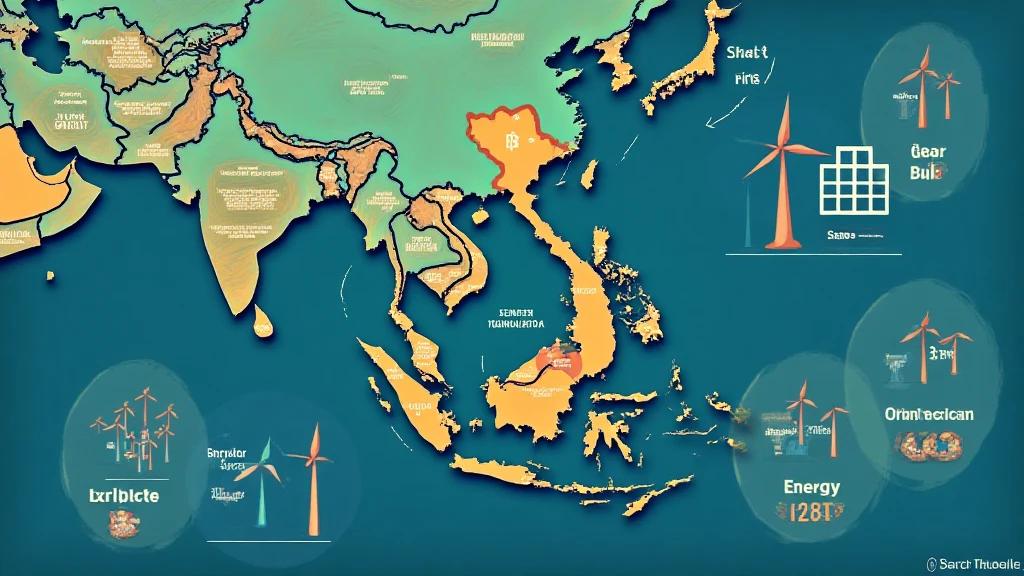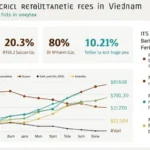Bitcoin, Blockchain, and Energy in Vietnam: A Bright Future Ahead
With the rapid growth of blockchain technologies and cryptocurrencies worldwide, Vietnam has emerged as a vibrant hub for innovation. The nation is exploring the potential of Bitcoin and blockchain technology while also wrestling with energy requirements and sustainability. The question is: How will Vietnam manage its energy resources to support the burgeoning Bitcoin blockchain ecosystem?
Understanding Bitcoin and Blockchain Technology
Bitcoin is the first and most recognized cryptocurrency, operating on a decentralized ledger known as blockchain. This technology enables secure peer-to-peer transactions without intermediaries. In recent years, there has been an increasing interest in Bitcoin due to its potential for high returns, drawing new investors and tech enthusiasts alike.
The Mechanisms Behind Blockchain
- Decentralization: Unlike traditional finance systems, blockchain operates on a decentralized network of nodes.
- Transparency: Transactions are recorded publicly, making it difficult to alter historical records.
- Security: Blockchain employs cryptographic techniques to protect data integrity.
Energy Consumption in Bitcoin Mining
Bitcoin mining is a process that requires significant energy resources. Miners solve complex mathematical problems to validate transactions and, in return, are rewarded with new bitcoins. This leads to concerns about the environmental impact and energy consumption of mining activities.

The Energy Dilemma
- In 2024, it was estimated that the Bitcoin network consumed 120 terawatt-hours (TWh) of energy, equivalent to that used by countries like Argentina.
- With rising electricity costs, miners are searching for cleaner and cheaper energy sources.
Vietnam’s Energy Landscape
Vietnam boasts a diverse energy mix, relying on fossil fuels, hydropower, and increasingly, renewable sources. In recent years, the Vietnamese government has set ambitious goals for renewable energy, projecting a growth rate of 10% per year in the sector.
Renewable Energy Potential
- Solar Energy: With abundant sunlight year-round, solar power is emerging as a leader in Vietnam’s renewable energy sector.
- Wind Energy: Coastal regions have begun to harness wind energy, providing a green alternative to fossil fuels.
Bitcoin and Renewable Energy in Vietnam
As the demand for Bitcoin mining increases, the synergies between energy production and cryptocurrency in Vietnam become more apparent. Embracing renewable energy for mining activities could provide a pathway to sustainability.
Case Studies: Successful Implementations
- Solar-Powered Mining Farms: Innovative startups in Vietnam are installing solar panels to power mining operations, significantly cutting costs and reducing carbon footprints.
- Partnerships with Energy Providers: Collaborations between cryptocurrency firms and renewable energy providers are gaining traction, as seen in recent ventures in southern Vietnam.
The Role of Government and Regulation
The Vietnamese government has been cautious in its approach to cryptocurrencies. However, regulatory frameworks are gradually forming, designed to support innovation while protecting investors.
Future Regulations and Standards
- Based on 2025 projections, the government is expected to release tiêu chuẩn an ninh blockchain (blockchain security standards), enhancing the regulatory landscape for cryptocurrencies.
- By fostering a safe environment, Vietnam aims to attract foreign investments in blockchain technology.
Market Trends and Local Statistics
As of 2024, Vietnam’s cryptocurrency users have surged by 30%, culminating in a community of over 8 million participants.
Growth Drivers
- Increased Smartphone Penetration: Vietnam’s smartphone user base is rapidly increasing, facilitating access to cryptocurrency markets.
- Young Population: With a median age of about 30, many are tech-savvy and open to new financial technologies.
Future Directions for Bitcoin and Blockchain Energy Use in Vietnam
In moving forward, Vietnam’s approach to Bitcoin and blockchain integration will center on sustainable practices. Adopting renewable energy sources as the backbone of cryptocurrency mining will bolster the ecosystem while safeguarding the environment.
Potential Challenges
- Balancing innovation with regulation will be critical.
- Ensuring access to cheap renewable energy for miners remains a challenge.
Conclusion
As Vietnam positions itself on the global bitcoin blockchain landscape, the intersection of energy consumption and sustainability will play a pivotal role. It’s clear that the relationship between Bitcoin and Vietnam’s energy resources can drive the country towards a prosperous, eco-friendly blockchain future.
For those looking to dive deeper into the world of blockchain, reach out to Bitcryptodeposit, your guide to navigating this exciting landscape.
Author: Dr. Nguyen Tran, a recognized expert in blockchain technology and energy systems, has authored over 15 papers in this field and led audits for several notable blockchain initiatives in Vietnam.







